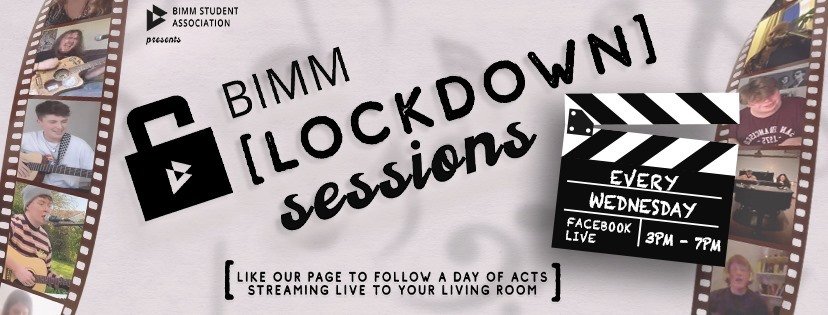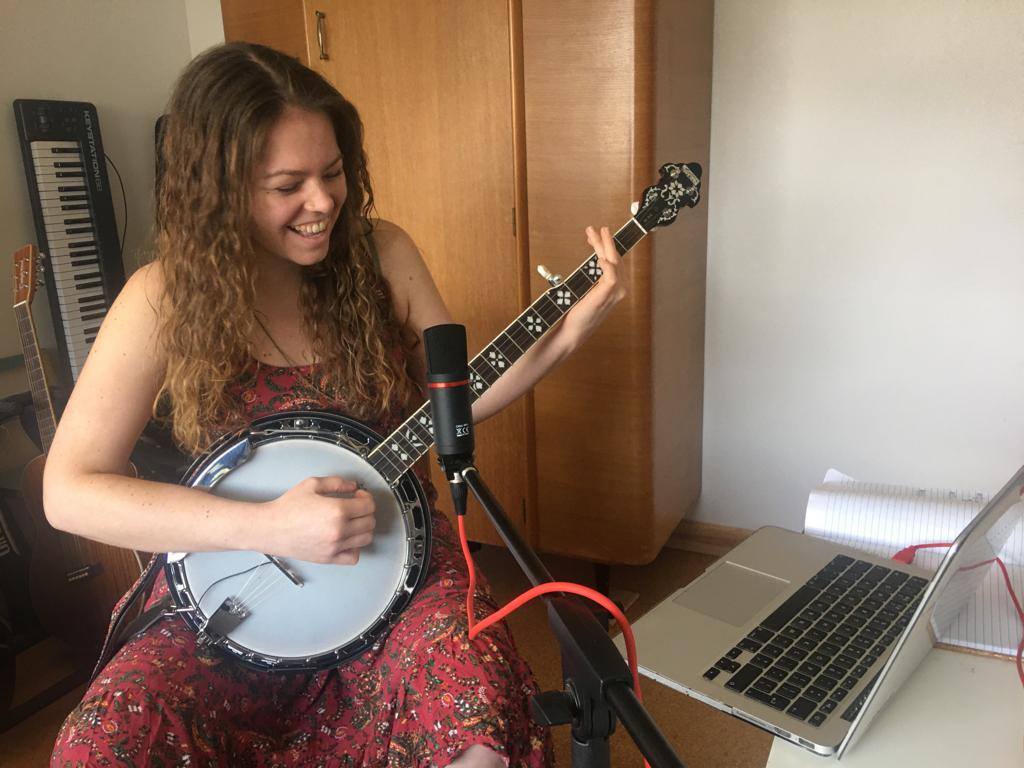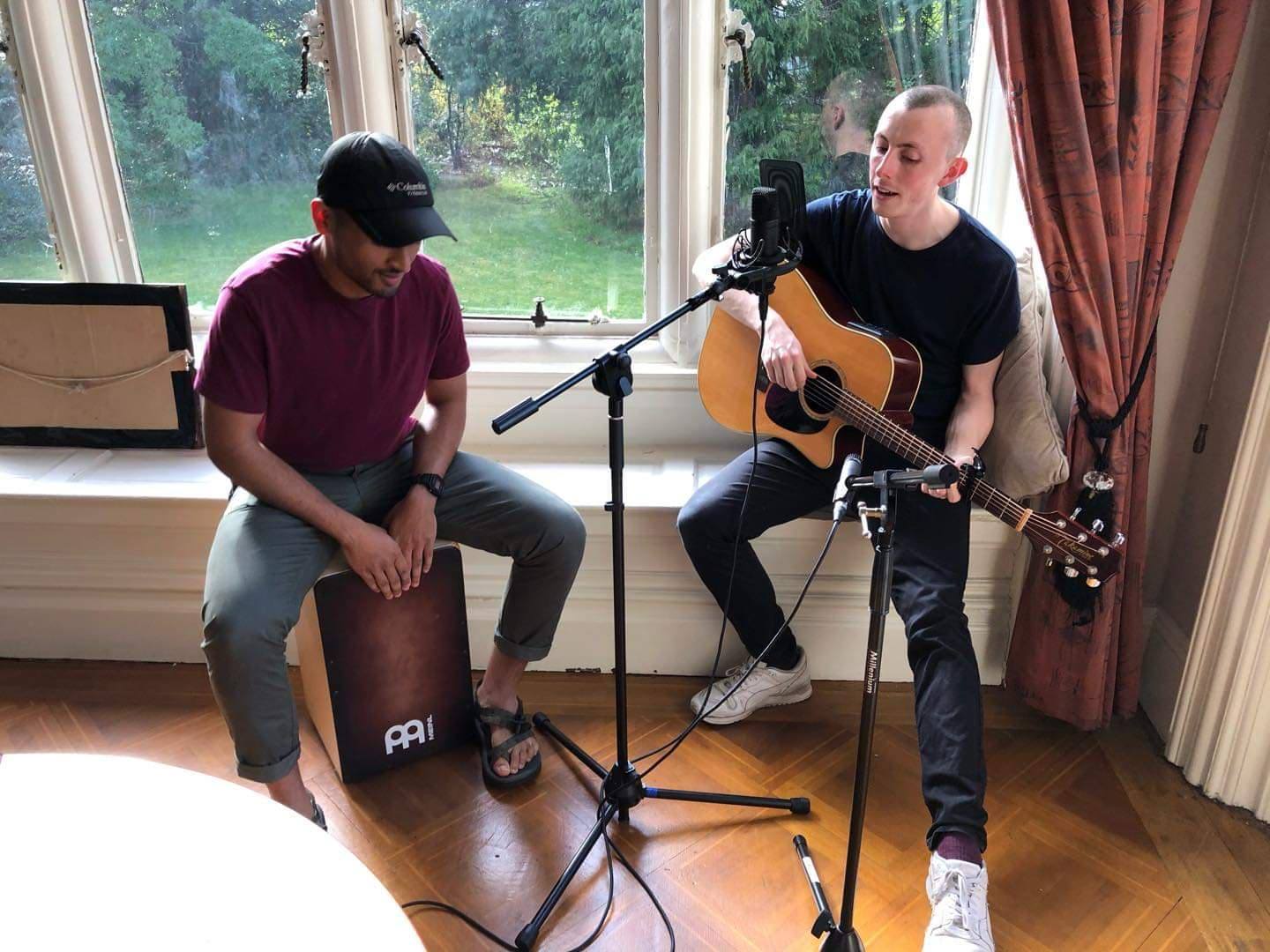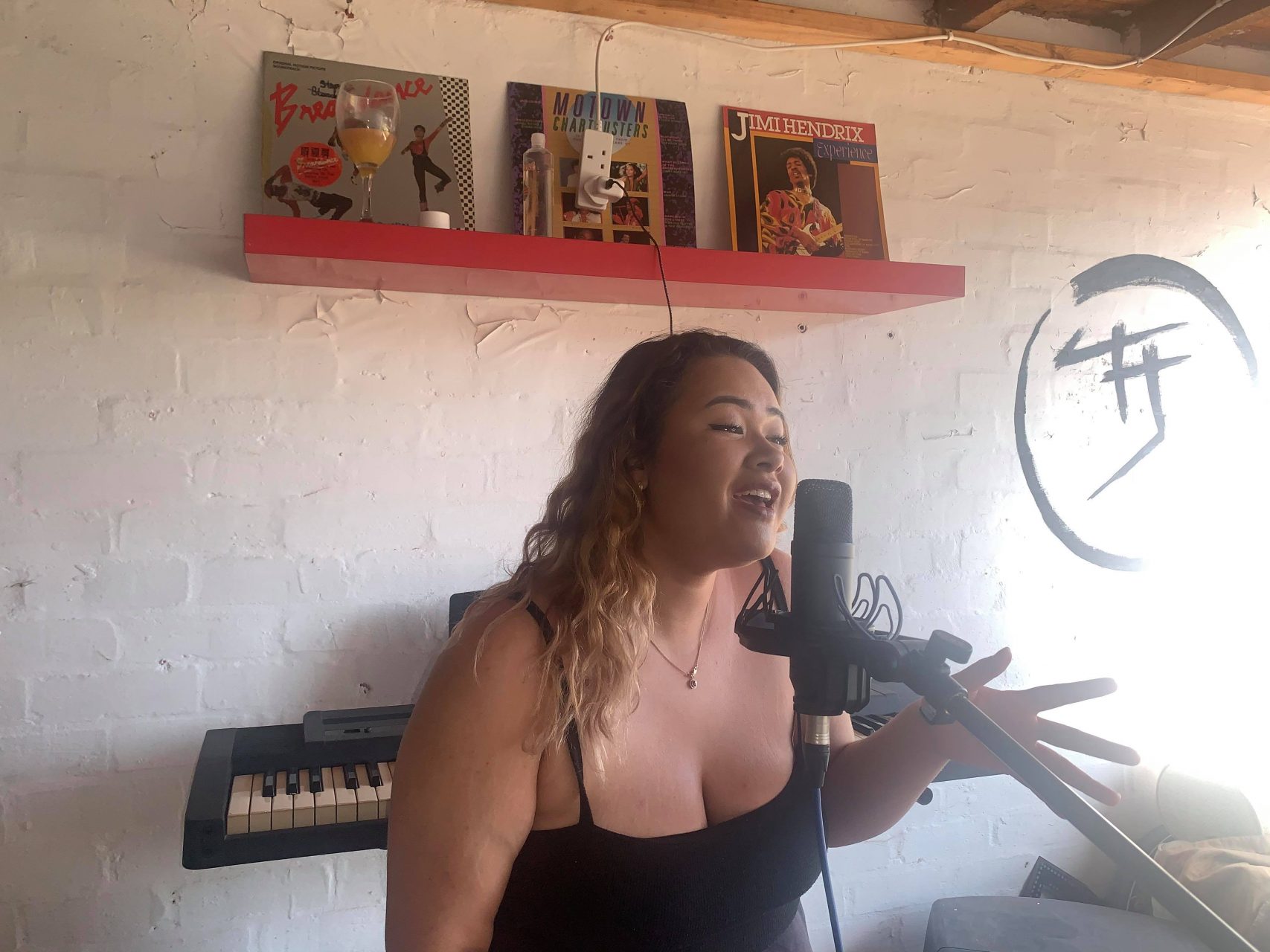Interview: BIMM’s Lockdown Sessions
 By Resonate | June 13, 2020
By Resonate | June 13, 2020
Words by Holly Bradley
The global pandemic has been a nationwide shock that has significantly changed how we lead our day to day lives. For many people, it has been a financial, mental and physical struggle. At Resonate, we want to send out our love and support to you all during this time and spread a message of hope and support to the music industry.
In times like these, we look to adapt. What are the small ways we can change our lives to function in this new world? Despite all the pain we’re facing globally, people have used their creativity and innovation to find new ways to survive. For people in creative industries, such as musicians, the inability to hold live performances hinders this career. As part of our artist interview serious at Resonate, we spoke to Anna Anise, a folk singer, songwriter and Student President of BIMM Bristol, about combating such issues for her fellow students and musicians and how BIMM Lockdown Sessions were born.

What inspired you to start the BIMM Lockdown Sessions?
Anna: A real inner desire to get on with something. I realised I am lucky enough to be in an excellent position in lockdown. I have an essential worker position in a shop, and my university work has been enabled digitally, so I still have that to work towards. I felt like I needed to make sure that I helped the people that weren’t as lucky.
I had loads of ideas. To begin with, I considered doing an open mic online. I even thought about designing my app, but then I realised learning app development is a bit beyond my skill set. So, I thought about what I can do with the resources I have, which is a load of contacts of amazing student musicians who now have no performance opportunities. That’s where the idea began.
To begin with, it was just going to be BIMM Bristol, but then all the other universities came to me saying “we want some of this”, and by the second week, we had every single university involved!
That’s great, what a fantastic way to keep spirits high and keep the music going. Are you surprised at how successful it has been?
A: Yes! It’s been so good. We have had up to about 40 people watching every performance. If you think about a small acoustic gig in a local pub or venue, you would have around 20/30 people in that environment, so the fact that we are pulling in those amount of viewers all day and mixing members of the public with the students is really cool.
How did you go about technically setting it up and what advice do you have for people wanting to set up similar projects?
A: I’d never gone live on Facebook before, and I wasn’t sure how it was all going to work. But I knew it was possible because I’d seen festivals broadcast on Instagram. I thought if they can do it on Instagram, then we can do it on Facebook. If I’m honest, it was trial and error. We had the concept, but that’s as far as our knowledge went. After the initial launch and first show, we had learnt so much, though it was stressful.
My advice to anyone wanting to do the same is just to go and do it! It’s the only way to figure it out, and things will fall into place. You can plan and have all these ideas of how it’s going to go as much as you want, but nothing will teach you as much as just getting on with it. In a socially digital environment like Facebook, the content was still going out to performers’ fan bases even if we messed up at our end. It was always going to be a win, win situation because of everyone’s efforts.

Is it still as much work as it was on the first day?
A: Oh, it’s become so much easier [laughs]. I have a team now, and there’s about 10 of us. We’ve got one or two reps from every university. The reps at every location post their artists and are in touch with them. I stay online throughout the whole time just to check in and see how everyone is doing so there’s a point of contact. Now I can just chill out for most of the day and listen to the music. A lot is going on behind the scenes and people working hard to find the right kind of acts.
That’s a brilliant progression. Are there any acts that have particularly stood out to you?
A: Yeah, I enjoyed Martha Phillips’s of The Elephant Trees, from BIMM Manchester. She did some very experimental looping; she was awesome. Gosh, there have been so many good people. I enjoyed Tiffy Harris from BIMM Hamburg. She was a vocalist playing a bit of guitar; it was raw and raspy. I just loved her voice.
What does the future look like for the Lockdown Sessions? Do you want to continue when the lockdown is lifted?
A: We’re thinking maybe of doing it in seasons. Getting a refreshed set of artists in that have something to talk about with the team. There are lots of fresh ideas in the pipeline. We’re going to have a day dedicated to the NHS (and the Irish and German equivalent of that) coming up soon. We’re also having a day dedicated to mental health as that’s a reason why we initially started, to raise spirits and make sure everyone can stay motivated about their music. We want to keep it fresh and keep it fun and keep people coming back.

Are you fully booked up in the way of artists?
We still have a few slots left. Get in touch with us! Everyone who’s played has said they really enjoyed the experience. There are always lovely comments that pick out really specific beautiful things about the acts. There’s so much to gain from it. There has been such a variety of performances spanning multiple countries, and we want more of that.
Thanks for chatting to us Anna and good luck with Lockdown Sessions, we will be tuning in to this excellent platform to support local music and our music community. Want to get involved or watch a session, head to their facebook for more details.
Want more lockdown entertainment? Check out our podcast recommendations, here.